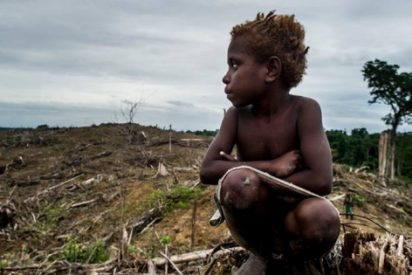93 West Papuan children reportedly die from disease caused by Indonesian government negligence
September 14, 2017
Below is a report by the International Coalition for West Papua (ICP)
“Human rights defenders have reported of a health crisis, which has affected seven villages in the Tigi district of Deiyai Regency as well as villages in the valleys Kamuu and Mapia of Dogiyai Regency. Multiple reports on the health situation in the affected area indicate that the local governments have failed to provide basic health services and carry out preventive health measures in the affected villages. such as vaccinations, sanitation and hygiene. Multiple sicknesses had caused the deaths of at least 93 villagers – most of them children below the age of ten – in the seven villages Ayatei, Piyake Dimi, Yinidoba, Digikotu, Epanai, Wagomani and Demago in the district Tigi. According to human rights defenders who collected data on the ground, the actual number of children who died due to infectious diseases was even higher. Many villagers refused to consult doctors and provide information on the disease due to the misconception that the deaths were accepted as ‘part of God’s plan’.

“Local health agencies in Deiyai had not noticed the sudden increase of various diseases in April 2017 due to dysfunctional health care facilities and the lack of adequate monitoring and response mechanisms in the remote areas. The data which was collected in Dogiyai indicates that the epidemic outbreak already began in February 2017. On 11 July 2017 a team of medics carried out a survey to identify the cause of deaths. Four days later medics provided acute treatment services and vaccinations in multiple churches of affected villages in Deiyai Regency.
“According to the results of the survey, the deaths were caused by multiple infectious diseases like acute respiratory tract infections, measles, diarrhea, and dysentery. The doctors moreover concluded that malnutrition had weakened the affected the immune system of villagers. However, a second survey by church workers in cooperation with doctors concluded that most deaths were caused by measles, which could have been prevented through vaccinations. Villagers stated that some health posts (PUSTU) in the area were closed for more than three years and the last vaccination program had been carried out four years ago.
Total number of deaths in Tigi District segregated by villages
-
Nr
Village
Cases of death
01
Ayatei
6
02
Piyake Dimi
17
03
Jinidoba
14
04
Digikotu
7
05
Epanai
5
06
Wagomani 12
07
Demago
32
T OT A L
93
Total number of deaths in Tigi District segregated by age
-
Nr
Village
Cases of death
01
0 months -1 year
52
02
1 – 3 years
28
03
3 -5 years
5
04
5 – 10 years
–
05
10 years and older
8
T OT A L
93
Background
“The Provinces Papua and Papua Barat continue to be amongst the regions with the highest child mortality in Indonesia whilst quality of health services is alarmingly low. Health facilities do not hold up to international health standards with regard to medical equipment, human resources and hygiene. General hospitals are only available in urban areas, while health services in rural areas are provided by small clinics (PUSKESMAS) which often lack personnel capacities, adequate medication and equipment. Despite the general challenges a Pertussis epidemic in Nduga Regency between November 2015 and February 2016 has shown that neither the provincial nor the central government lacks adequate monitoring and response mechanisms regarding the health situation in remote areas. There are no effective strategies or preventive mechanisms in place to avoid and deal with breakouts of transmittable diseases in remote areas.
“On 3rd May 2017, the human rights situation in Indonesia was reviewed for the 3rd time as part of the Universal Periodic Review mechanism of the United Nations Human Rights Council in Geneva, Switzerland. Minister of foreign affairs, Mrs. Retno Marsudi, spoke about particular human rights improvements in its easternmost provinces Papua and Papua Barat. According to Marsudi, approximately 2.8 million residents in Papua Province had received health cards to access free health care services. However, such health care programs are rare in rural areas, coastal areas, islands and the highlands of West Papua. Other problems are mismanagement, poor accountability, and a culture of mistrust between indigenous people and the government. So far the government has not come up with effective strategies to address the health problems associated with maternal mortality, infant mortality, child mortality and malnutrition.”
